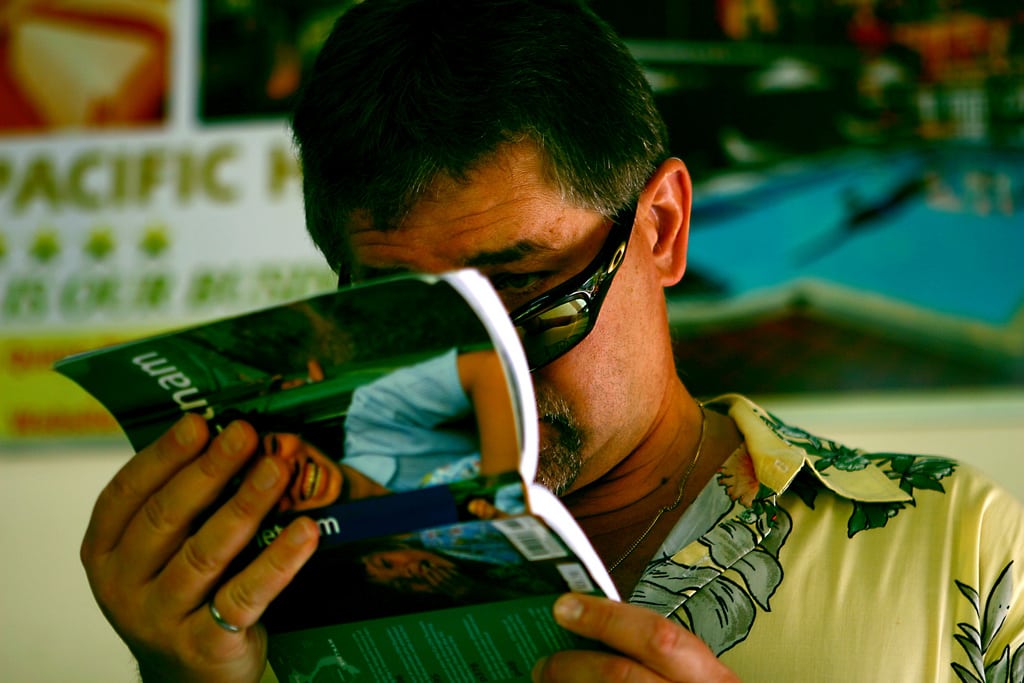Skift Take
LP is one of the strongest travel brands anywhere, but that doesn't make it immune to incompetence in the executive suite. It needs to stop chasing silly mobile ideas (Wenzani? Really?) and focus on the strength of its content.
BBC Worldwide has written down the value of Lonely Planet by almost £50m since acquiring the guidebook publisher in 2007, as the business struggles to cope with high costs and the transition to digital and TV.
BBC Worldwide sparked widespread criticism that it was over-reaching its remit when it acquired a 75% stake in Lonely Planet in 2007 for £88.1m, not least from Time Out founder Tony Elliott.
The BBC’s total investment upped to £130.2m when Tony and Maureen Wheeler, who founded Australia-based Lonely Planet in 1973, exercised an option to sell their remaining stake in February last year.
BBC Worldwide revealed on Monday that it now values the business at £85m.
The commercial arm of the BBC also revealed that it has been forced to take a £16.1m “charge to the income statement” in the year to the end of March, leaving the goodwill value of Lonely Planet at just £22.6m on its books.
The organisation blames a charge on rising costs thanks to the sky-high strength of the Australian dollar, arguing that despite a challenging year the business put in a “solid underlying performance”.
Nevertheless John Smith, the chief executive of BBC Worldwide, refused to answer the question of whether after five years of ownership the business was profitable.
“I’m not going to say,” he said. “It is a shame, I wish it wasn’t the case that most of the costs are in Australia, which is at a 28-year high against the pound. It is a very, very successful brand. The vagaries of accounting means that you can’t put a [real] value of the brand on the balance sheet. It is the value of the brand that is the key thing.”
The annual report reveals that a tough review of the operation resulted in reorganisation charges of £5.1m – up from just a few hundred thousand the year before – as costs were cut out of the Australian business to “help secure its long-term viability and reduce the impact of further currency appreciation”.
Changes include moving the digital business from Australia to the UK, digitising the operation, publishing guides in other countries such as India and moving the brand to new platforms such as TV.
Smith said 23% of revenues now come from digital, although the annual report nor Smith would split out figures for the business.
There have been two Lonely Planet TV commissions, Year of Adventures and Best Parks Ever, while the guidebook operation has performed “creditably” against rivals.
Smith said that since buying into the company in 2007 it has moved from third to first place in terms of marketshare in the US.
Digital average monthly unique users to lonelyplanet.com have grown 35.8% to 11.3m, while downloads of the iPhone apps have reached 10m.
Ebooks, which extend to 260 titles, has grown revenues by 200% year on year.
![]()
The Daily Newsletter
Our daily coverage of the global travel industry. Written by editors and analysts from across Skift’s brands.
Have a confidential tip for Skift? Get in touch
Tags: bbc, lonely planet
Photo credit: A traveler looking at a Lonely Planet guidebook. Kevin Jaako / Flickr
